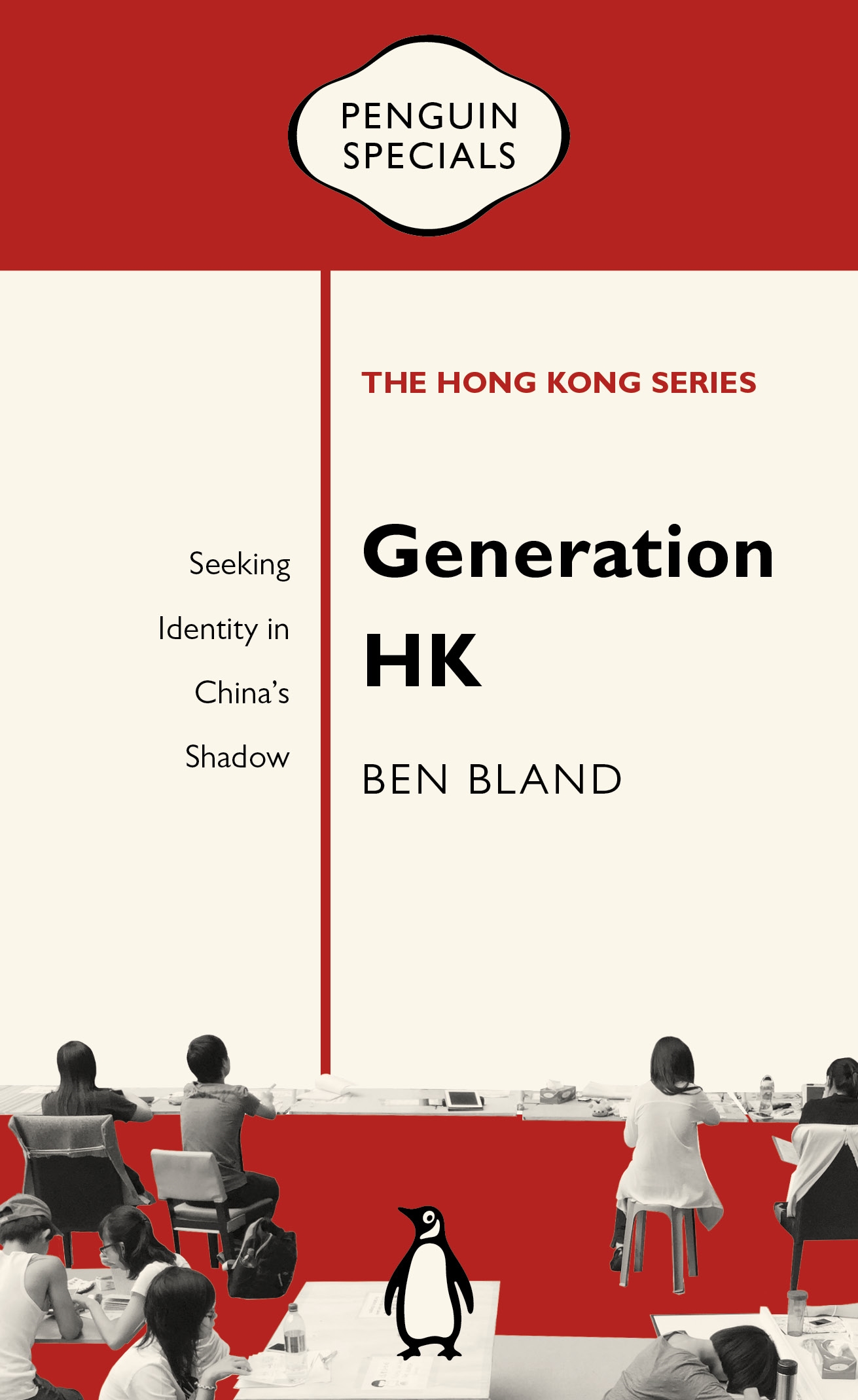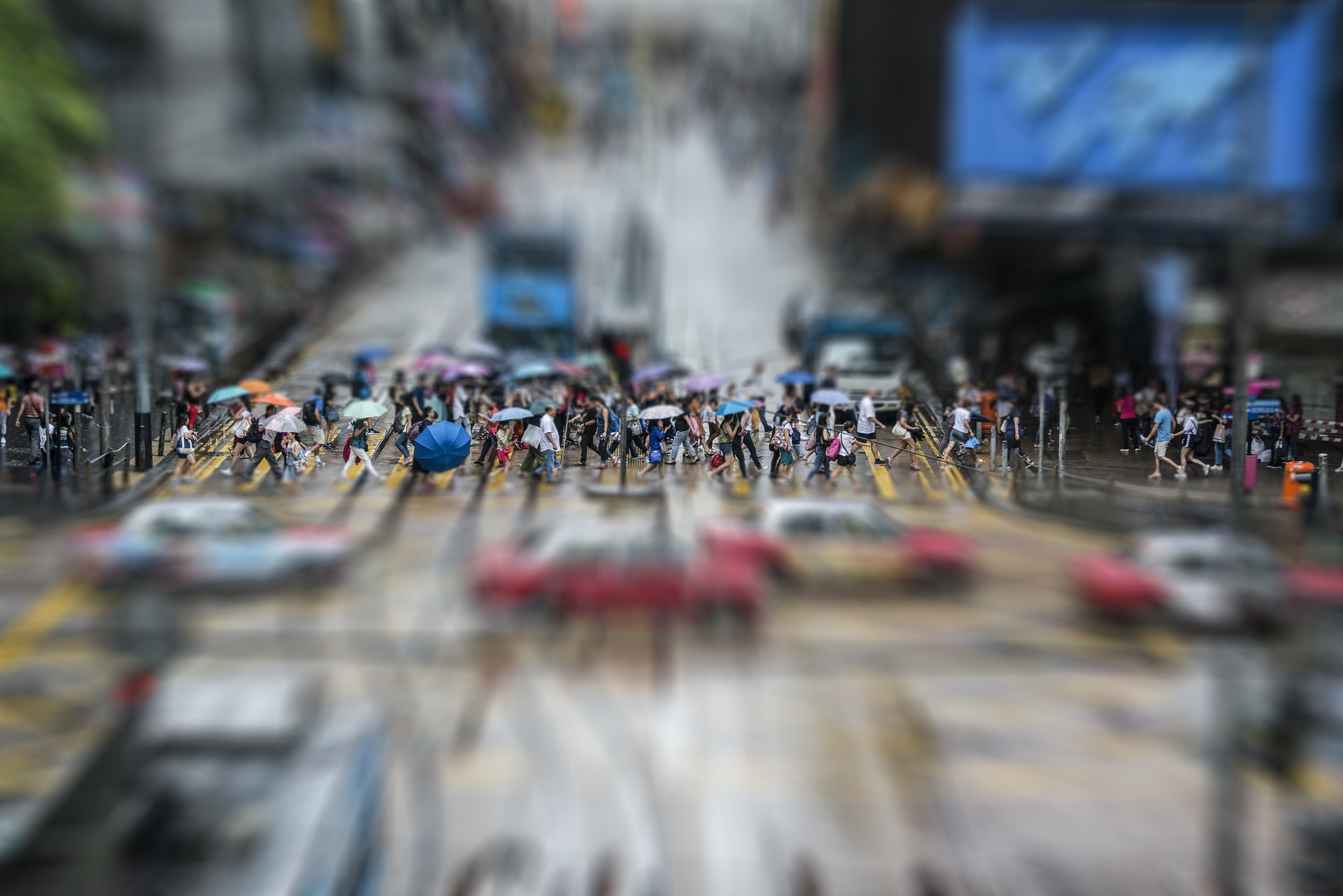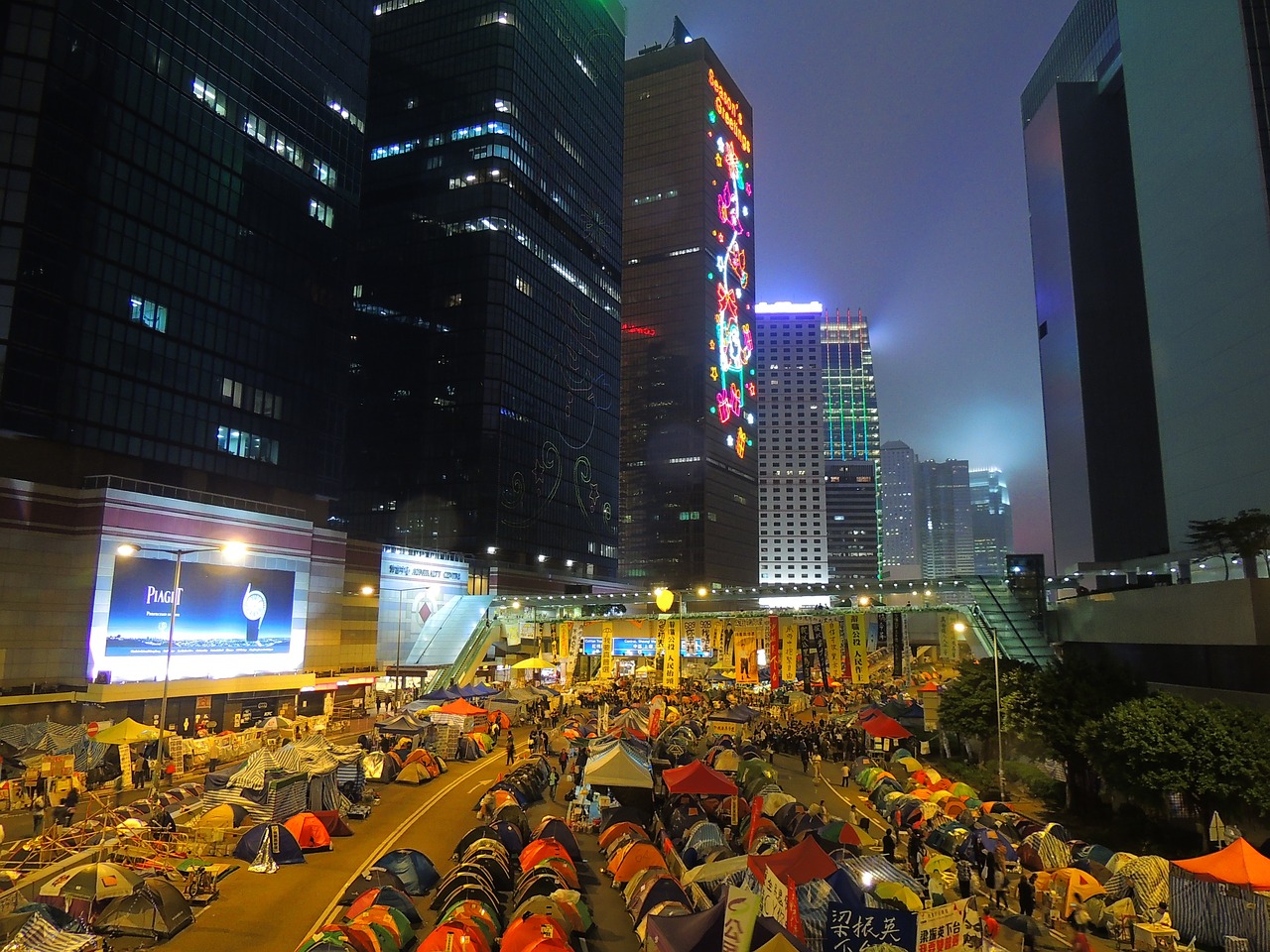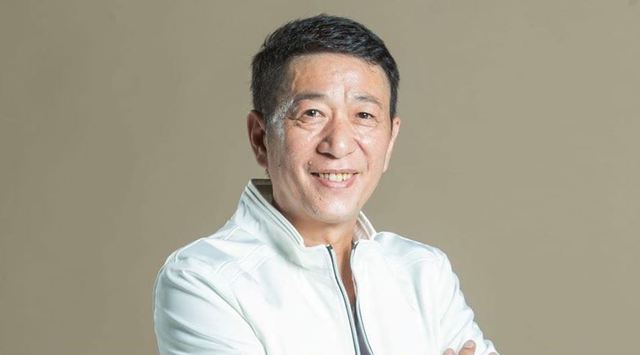Through six chapters, ‘Generation HK’ highlights a different group of young Hong Kong people and their response to the current political and economic moment, when all but the wealthiest Hong Kongers face the bleakest economic prospects in generations.
In Generation HK, British journalist Ben Bland takes us on a tour of a Hong Kong that is searching, in the popular parlance, for its best self. In hipster coffee shops, hole-in-the-wall restaurants, air-conditioned offices, plush private members’ clubs and packed classrooms, he introduces us to members of a new generation who are striving to define themselves as the clock ticks down to 2047, when China’s promise to allow Hong Kong substantial autonomy under “one country, two systems” will expire. Subtitled “Seeking Identity in China’s Shadow,” the slim volume gets right to the point in unpacking the ambivalence and anxiety felt by many young residents in relation to Hong Kong’s future. Through a series of conversations, Bland discovers a city that is “uncomfortable with its history, unhappy with its present and unsure of its future” — but one that is determined to fight, if necessary, for survival.
Generation HK is part of the Penguin Specials series: short works that can be read in a single sitting, the publisher claims, while “stuck on a train; in your lunch hour; between dinner and bedtime.” (I confess to having been seduced by the iconic vintage design of the book’s cover.) Each of the book’s six chapters highlights a different group of young Hong Kong people and their response to the current political and economic moment. There are the student leaders of the Occupy movement who ran for and won political office; the overworked (and overpaid) celebrity tutors; the white-collar professionals who are politicizing their workplaces; the offspring of billionaire tycoons who wring their hands unconvincingly; the artists for whom censorship is a source of creative tension; and the Malcolm X-identified political radicals who are advocating full independence from China.
 Bland moved to Hong Kong to become South China Correspondent for the Financial Times in 2015, after spending six years in Indonesia, Singapore and Vietnam. As such, he brings a different perspective to bear on Hong Kong than a Mainland China-based expert might. He situates Hong Kong in the broader regional context of Southeast Asia and not simply against the backdrop of Greater China. Having expected Hong Kong to fall somewhere along the spectrum of press freedom between Indonesia (quite free) and Vietnam (very unfree), he admits to having been surprised by the difficulty of doing his work in the former British colony, citing a “growing climate of fear, self-censorship and omertà.” Acting more as a non-fiction narrator than a newspaper reporter, he makes no attempt to conceal his own professional stake in press freedom or to offer “both sides” of the issue — and the book is stronger for it.
Bland moved to Hong Kong to become South China Correspondent for the Financial Times in 2015, after spending six years in Indonesia, Singapore and Vietnam. As such, he brings a different perspective to bear on Hong Kong than a Mainland China-based expert might. He situates Hong Kong in the broader regional context of Southeast Asia and not simply against the backdrop of Greater China. Having expected Hong Kong to fall somewhere along the spectrum of press freedom between Indonesia (quite free) and Vietnam (very unfree), he admits to having been surprised by the difficulty of doing his work in the former British colony, citing a “growing climate of fear, self-censorship and omertà.” Acting more as a non-fiction narrator than a newspaper reporter, he makes no attempt to conceal his own professional stake in press freedom or to offer “both sides” of the issue — and the book is stronger for it.
While by no means a cross-section, each group provides a particular way in to the social, economic and political forces that are shaping Hong Kong in 2017. What they all have in common — even those whose political convictions are weak or non-existent — is that they are, in Bland’s words, “caught between two worlds.” Lacking connection to the traditions of British colonial rule and without strong ties to the Chinese mainland, this is a generation untethered from Hong Kong’s past as well as its presumptive future; untethered, that is, from the arc of officially-sanctioned history. In response, many are digging down into the soil beneath their feet, searching for a distinct and politically viable Hong Kong identity that could bolster a claim to democratic self-determination — or even independence — as 2047 approaches.
Bland is careful to stipulate that the individuals he profiles are “not meant to be a representative sample of Hong Kongers” and that “they do not speak for a generation so much as speak to it.” In that respect, he grants himself a capacious rubric, one that shifts some of the responsibility for finding a common thread between the characters onto the reader. For this reader, the chapter on Hong Kong’s celebrity tutors seemed somewhat out of place alongside the others on artists, activists and super-wealthy scions. The fact that education in Hong Kong has become so competitive that it resembles “an existential fight” is an important context for the emergence of Bland’s posited generation. But this chapter reads as a deviation from his principal concern: how different groups are imagining and striving for the political future of Hong Kong.
The most compelling chapter focuses on a group that Bland calls “the professional democrats”: young white collar professionals who feel compelled to bring politics into the workplace. One insurance broker in his mid-20s was jolted out of apathy when he witnessed the firing of tear gas and baton charges against the Occupy protesters on Sept. 28, 2014. Despite being on the fence about the activists’ demands, he was offended by the non-reactions of his colleagues: while high school students were being tear-gassed for peacefully protesting on the street outside, they kept silent and went on “as if nothing happened.” He eventually banded together with a handful of activism-curious colleagues to begin a pro-democracy lobbying group in the insurance industry, joining other groups in sectors such as accounting, IT and finance.

Bustling Hong Kong in times of political and economic uncertainty (Photo: bluelightpictures, Creative Commons).
Unlike the student leaders who became politically active while still in high school, these individuals are far enough along in their careers to have jobs and professional reputations to lose. For that reason, they are arguably some of the most courageous activists in Hong Kong today. They also provide evidence for Bland’s claim that a subtle social transformation is underway: the expectation that with power comes the responsibility “to keep your mouth shut” about politics — a compromise that has shaped Hong Kong’s image for decades — is changing.
But changing how much, and how fast? Bland adds nuance to the narrative by describing a friend who works at an international investment bank. During the Occupy protests, this friend was irritated at the protesters for disrupting his commute. Gradually, though, he developed respect for their cause and gratitude for their willingness to take a risk that he could not countenance. “People like me are not willing to speak out because we might get sacked,” he tells Bland. But if people like him won’t speak out, then the activists must shout even louder. This dynamic, of a self-censoring middle class delegating political action to a group of impassioned young activists, could easily trigger a cycle of radicalization as Beijing hardens its stance.
The ambivalence entailed by self-censorship raises a larger and more daunting set of questions that loom unanswered over the city’s elites. What would have to happen for them to be compelled to speak out? Could Hong Kong be headed for a more violent confrontation between authorities and protesters? Bland doesn’t speculate about the specific scenarios that might arise in coming decades; instead, he compiles his material in such a way that these threads of inquiry emerge organically.
Bland succeeds admirably in putting flesh on the bones of Hong Kong’s recent story — one that has unspooled in stark headlines, often at the cost of personal narratives.
While at times the book feels a little rushed, Bland succeeds admirably in putting flesh on the bones of Hong Kong’s recent story — one that has unspooled in stark headlines, often at the cost of personal narratives. The book’s form — a series of profiles of and interviews with a handful of individuals, interspersed with the author’s own impressions — makes it a quick and engaging read. More than that, it evokes a larger and loftier idea: that in the face of a monolithic authoritarian government (which is often literally faceless, since senior Communist Party leaders seldom visit Hong Kong), the most powerful form of resistance is embodied by the personalities and passions of individual citizens.
In his conclusion, Bland notes that “the growth of a separate Hong Kong identity, in fact, mirrors the growth of a Taiwanese identity” — a claim that rings true both anecdotally and statistically. Bland cites a 2008 poll by the Hong Kong University, in which 39% of respondents described themselves as “Chinese,” compared to 16% in 2016; conversely, 47% of respondents described themselves as a “Hong Konger” in 2008, compared to 64% in 2016. Political economist Syaru Shirley Lin, in her recent book on surging Taiwanese national identity (which I reviewed for Taiwan Sentinel earlier this year), finds an analogous trend. Since the outset of Taiwan’s democratization in the late 1980s, the proportion of the population who define themselves as either exclusively Taiwanese or both Taiwanese and Chinese — as opposed to exclusively Chinese — has risen steadily to over 90% in 2014.

The Occupy movement, a formative event for a new Hong Kong identity? (Photo: AndyLeungHK, Creative Commons).
Like Hong Kong, Taiwan has recently reached a historic demographic watershed, with the coming of age of a generation who feel little allegiance to the “one China” vision of the Kuomintang (KMT) government and even less to that of the People’s Republic of China (PRC). The young leaders of Taiwan’s Sunflower movement, in that respect, occupy a demographic niche similar to that of the student leaders of the Occupy movement. Both seek to forge an inclusive indigenous identity built on civic values, rather than ethnicity; in both cases, Beijing’s attempts to coerce or intimidate have only served to strengthen the burgeoning local identity. For many Taiwanese, Hong Kong serves as a warning of what might befall Taiwan’s institutions of governance should they fall under Beijing’s control. Conversely, one imagines that for the young members of Generation HK, Taiwan serves as an example of what might be possible.
As I sped through Generation HK, I kept thinking of a razor-sharp piece of writing by Jiayang Fan published in The New Yorker at the height of the Umbrella Movement in October 2014. In it, Fan delves into her childhood to evoke the attitude of many in China proper toward Hong Kong in the 1980s. To mainlanders struggling with poverty, Fan explains, Hong Kong resembled a simpering, pampered mistress, spoiled by years of cosmopolitan colonial rule and out of touch with the China from which it was rudely severed in the nineteenth century. Little wonder, then, that many PRC citizens regarded the pro-democracy protests as “almost sanctimonious.” It is a valuable and underappreciated perspective — and Fan conjures it without necessarily endorsing it — that generates profound cognitive dissonance when considered alongside Generation HK. Today, as all but the wealthiest Hong Kongers face the bleakest economic prospects in generations, a scrappy minority is insisting on the messy political remedy of democracy. The Umbrella Movement, Bland points out, was so compelling because “it rudely upended the casual stereotypes about [Hong Kong]” as the “Great Mall of China.” The same can be said of this potent little book.
Book Details
Generation HK: Seeking Identity in China’s Shadow
By Ben Bland
Penguin Books (2017)
100 pages
You might also like
More from China
A Few Thoughts on the Meng-Spavor-Kovrig Exchange
It is hard not to see this weekend’s developments as a victory for China and the creation of a world …
As Coronavirus Crisis Intensifies, Beijing Continues to Play Politics Over Taiwan
With a major epidemic on its hands, the Chinese government has not ceased its political warfare activities against Taiwan. It …
Candidate Claims ‘Nobody Loves Taiwan More Than Xi Jinping’
Family business connections in the Pingtan free-trade zone and a son’s involvement with the CPPCC are raising questions about possible …









